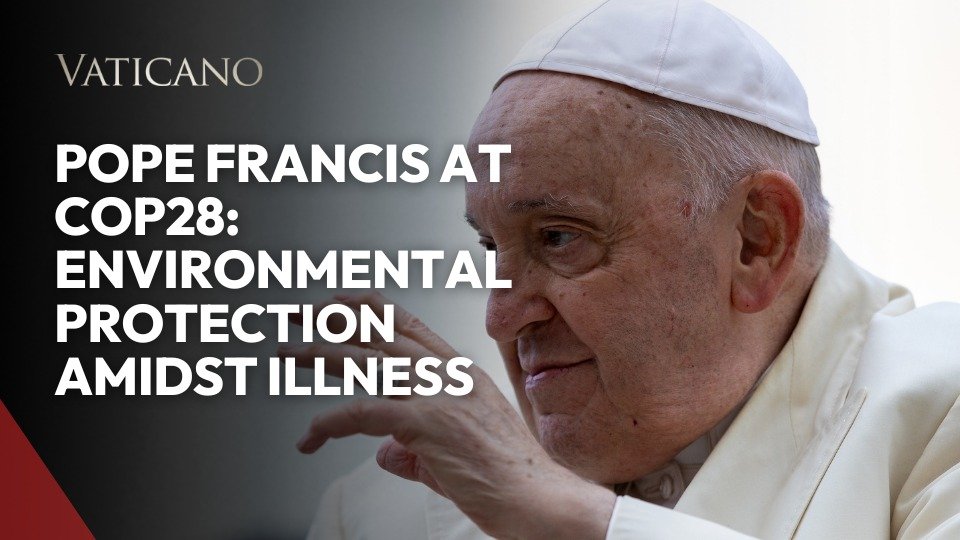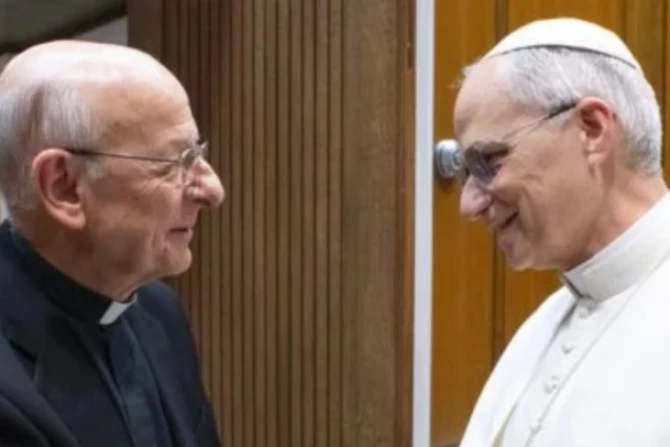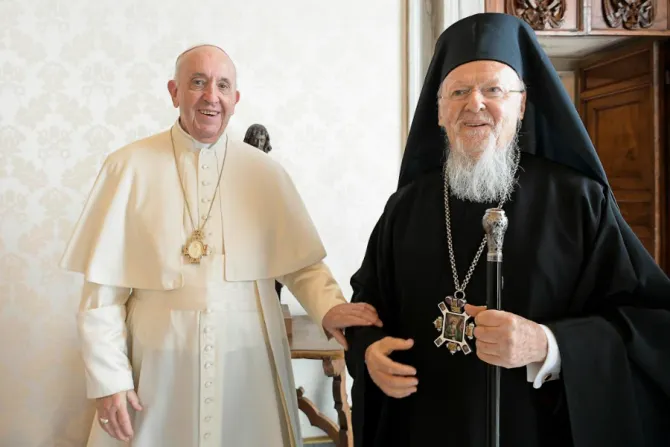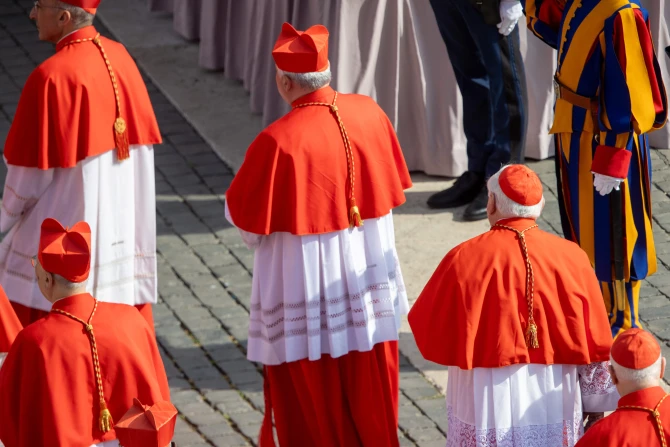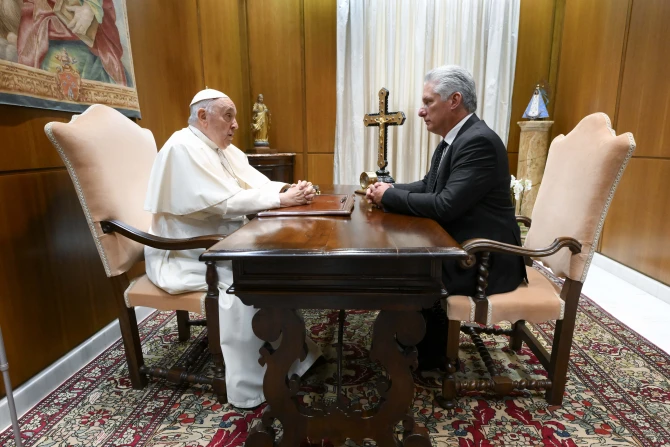Pope Francis, the Archbishop of Canterbury, Justin Welby, leader of the worldwide Anglican Communion, and Pastor Iain Greenshields, moderator of the General Assembly of the Church of Scotland, will be in Juba, the capital of South Sudan, from Feb. 3rd through 5th in an apostolic trip postponed from last July due to the pope’s health. The motto of the trip is ‘I pray that all may be one’.
As Msgr. Hubertus van Megen, the pope’s representative in South Sudan and apostolic nuncio to the east-central African country described:
“For South Sudan a new path of hope will be opened because the Holy Father will come to give us courage and bring us the peace, we have been waiting for… We must pray for this long-awaited meeting will bring help to the country… The visit confirms the commitment and the will of the Catholic Church to bring about and sustain peace in this area.” South Sudan achieved independence in 2011, but civil war broke out just two years after. An estimated 400,000 people died in the conflict. While a 2018 peace agreement ended most of the fighting, ordinary people still suffer from violence and hunger.
We asked Christian Carlassare, bishop of Rumbek, successor to Msgr. Cesare Mazzolari, and president of the ‘Caesar’ foundation, to tell us about the people’s expectations for this trip of the Pope to South Sudan:
“The expectations of people who have lived for many years in a context of insecurity and conflict like the South Sudanese may seem trivial to many. But they are certainly not trivial, because, in their simplicity, they know how to read the signs of grace in the simplest events and always find hope. Many people today feel forgotten or abandoned by the international community, partly because of the guilt of not being able to keep the peace and give stability to the country, but also because the eyes of the world very quickly shift their gaze by paying attention to those realities that are highlighted by the media and where there are more important economic interests. So, on the one hand, many people look forward to the Pope’s blessing and with great devotion they welcome the attention he gives to the peripheries, the last and marginalized, the forgotten conflicts. On the other hand, there is the awareness that the eyes of the world are moving to where the Pope is going, and therefore, many hope that the international community will be more sensitive and open in supporting the institutions in the peace process, and also more generous in dealing with the food emergency caused by insecurity, conflict, the consequences of climate change, and a very fragile economic situation.”
The motto of the trip is ‘I pray that all may be one’: how will its implementation be possible?
“South Sudan gained independence from Sudan in 2011. And the Church had called out the importance of forming a united people out those from different tribes, who speak different languages, and have different traditions. This is a complex task that demands time and the commitment of all. The conflict that began in December 2013 represented the most complete failure of this purpose, as it began from political differences, and then took on ethnic colorations and disseminated resentment. The various peace agreements have all proved quite fragile and failed to unite the country. It is clear to all that division is a dead end. Only unity is a viable path that opens to a better future. Currently, South Sudan has a transitional and national unity government. Despite differences and the presence of dissenting groups, dialogue and inclusive work that excludes no one is encouraged. The motto chosen by the pope calls for all this: political, social, anthropological, and, why not, even the unity of faith through an ecumenical visit, the first of its kind. A unity of faith (orthodoxy) that also becomes the orthopraxis of charity and fraternity.”
In what way is reconciliation possible?
“Reconciliation and peace must be integral and not only concern one of the aspects of human and social life. We cannot build a reconciled and peaceful society if we have not reconciled with ourselves and made peace within our hearts. At the same time, it is not enough to have a heart at peace; indeed, one cannot have a heart at peace in the face of the many injustices that are taking place in the world and that are likely to continue to recur. St. Augustine said it well that hope has two children: anger and courage. Anger at seeing things as they are and courage to change them. This courage does not translate into fighting against evil, but in taking the weight of evil on one’s own shoulders and carrying it along a bristling path of communion with all victims and transformation and humanization of the world.”
You have proposed paths of reconciliation: how viable is that path?
“It is the narrow path. The world knows other ways: just think of the well-known ‘Roman peace’. Here in South Sudan, too, the government and the opposition signed a peace agreement that marked a truce from the conflict and hope for a possible tranquility. But it is still not possible to achieve the great words spelled out in the national anthem: justice, freedom and prosperity. At the political level, there are still oppositions to the government of national unity. There are armed groups claiming more power and more access to resources. The social fabric of the country is still very fractured, because ethnicity of belonging weighs heavily. There is prejudice and resentment. A third of the population lives in income insecurity and are either displaced from their territories or refugees in neighboring countries. Despite the agreement in government, they have not yet returned to their homes, and economic activities are struggling to get off the ground. Climate change plagues the population. In the midst of so much confusion, I see a community walking the narrow path that has realized that only a reconciled and supportive community can promote life.”
What role does the Church play in the fight against slavery?
“There are old and new kinds of slavery. We find ourselves recognizing the slavery of a fossilized culture that does not change and does not offer new responses to modern challenges. The slavery of a woman who is not allowed to emancipate herself on pain of exclusion; the slavery of a family that is still far from fully recognizing this woman’s value in society; the enslavement of little girls who are considered an economic resource when they guarantee a major income with the dowry for their marriage; the slavery of a view of life and destiny that does not confront what hurts our humanity, and does not take care of people’s health or of the surrounding environment; the slavery of ‘the strongest wins’ that encourages violence. In the face of these bondages, there is a need for deep conversion that comes from integral education as expressed by Pope Francis in the Global Education Pact. Education is not only knowing subjects, but, above all, knowing oneself, the other as brother, the environment as common home and the Transcendent.”
What legacy did Msgr. Cesare Mazzolari leave to the South Sudanese people?
“It must be acknowledged that Msgr. Cesare Mazzolari revived a diocese that was dead because of the conflict. He nurtured and educated it until it became a model for the wider church in South Sudan, resting on five pillars: evangelization, education, poverty alleviation, human promotion, and the ministry of justice and peace. Many South Sudanese also recognize Father Caesar as a founding father of the new nation having promoted human dignity and fostered the education of those who are now largely the leaders of this young country.”



